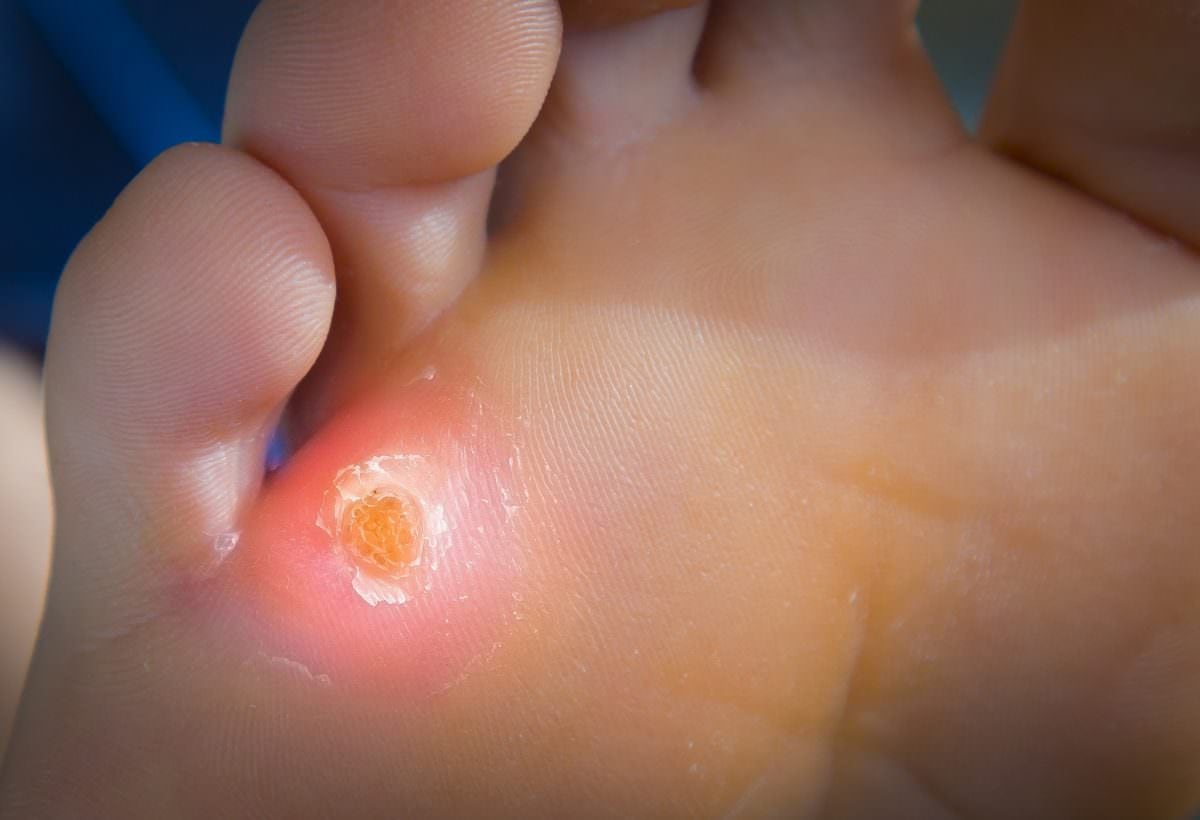
What is a Corn?
Corns are areas of thickened skin that develop to protect that area from irritation. They occur when something rubs against the foot repeatedly or causes excess pressure against part of the foot. . If it occurs on the top of the foot (or toe), it’s called a corn.
Corns are not contagious but may become painful if they get too thick. In people with diabetes or decreased circulation, they can lead to more serious foot problems.
Causes
Corns often occur where a toe rubs against the interior of a shoe. Excessive pressure at the balls of the feet—common in women who regularly wear high heels—may cause calluses to develop on the balls of the feet.
People with certain deformities of the foot, such as hammer toes, are prone to corns and calluses.
Symptoms
Corns typically have a rough, dull appearance. They may be raised or rounded, and they can be hard to differentiate from warts. Corns sometimes cause pain.
Home Care
Mild corns may not require treatment. If the corn isn’t bothering you, it can probably be left alone. It’s a good idea, though, to investigate possible causes of the corn . If your footwear is contributing to the development of a corn, it’s time to look for other shoes.
Check with a podiatrist if you plan on using any over-the-counter treatments, especially if you have any medical conditions such as diabetes. Some over-the-counter treatments contain harsh chemicals, which can lead to the development of foot ulcers.
When to Visit a Podiatrist
If corns are causing pain and discomfort or inhibiting your daily life in any way, see a podiatrist. Also, people with diabetes, poor circulation, or other serious illnesses should have their feet checked.
Diagnosis and Treatment
The podiatrist will conduct a complete examination of your feet. X-rays may be taken; your podiatrist may also want to inspect your shoes and watch you walk. He or she will also take a complete medical history. Corns are diagnosed based on appearance and history.
If you have mild corns, your podiatrist may suggest changing your shoes and/or adding padding to your shoes. Larger corns are most effectively reduced (made smaller) with a surgical blade. A podiatrist can use the blade to carefully shave away the thickened, dead skin—right in the office. The procedure is painless because the skin is already dead. Additional treatments may be needed if the corn recurs.
Cortisone injections into the foot or toe may be given if the corn is causing significant pain. Surgery may be necessary in cases that do not respond to conservative treatment.
If you are experiencing pain or noticing a change in your feet you should seek medical care right away. Early care can help prevent the condition from worsening. Contact Podiatry Group of Georgia today to schedule your appointment or book you appointment online. cited www.apma.org
Call Our Marietta, Georgia Office Today at 404-806-3731 or Book your appointment online now!

![podiatryGroup-Logo[1] Logo](https://www.podiatrygroupofgeorgia.com/wp-content/uploads/2020/07/podiatryGroup-Logo1.png)